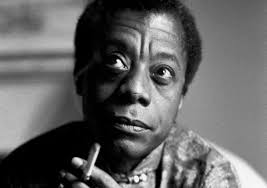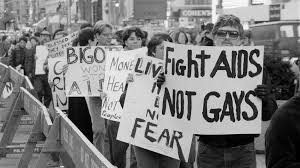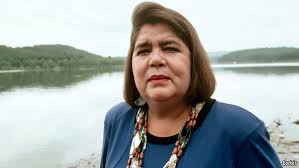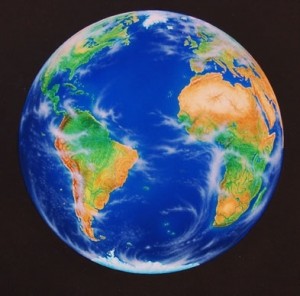If you’re just now getting desperate about climate catastrophe, endless wars, and the cruelty of the society in which we live, welcome to the club. If you haven’t had such thoughts, you might want to stop reading now, lest you be triggered. But if you sometimes go to despair, where any news medium can take you, this essay might help you cope.

“Desperate” comes from the Latin word for “without hope.” It’s a bad feeling, but you might be surprised to learn there are ways you can live well without hope. Your life can still manifest beauty, love, happiness, and even humor. You can still do a lot of good.
In the interest of full disclosure, I’m not homeless or a refugee. I have friends and family, food, and a warm place to sleep, far from the war zone. So, I can’t speak for everyone; being cold and hungry, traumatized and fearful, could make hope more important. But from what I see and where I sit, despair may be better than false hope.
Despair is not Depression
I’ve lived with a chronic disabling illness (multiple sclerosis) for 40 years. Even before that, I had been aware of the terrible oppression a few people visit on so many others, their immense power and their absolute resistance to change. I’ve known about impending man-made ecological collapse for almost as long. For years, people would tell me I was depressed, and I would say, “I’m not depressed. I’m in despair. There’s a difference.”
It kept coming up, so I researched it, and they really are different. Like despair, depression makes you sad and fearful, but depression also causes symptoms such as loss of pleasure in things you used to like, loss of interest in the world, disturbed sleep or eating patterns, feelings of worthlessness or uselessness. I didn’t have those.
I did have Despair. I saw no reason to think things would get better, and plenty of science telling us they will get worse. I’ve been living with that version of reality for over 15 years. Occasionally, I do sink into depression, and I can feel the difference right away. Depression is far more disabling and painful; you just want to lie there and have the world go away.
I’m writing this analysis now because despair is catching on. After the storms, fires, and wars of 2017-18, the ongoing climate chaos, the hundreds of millions of refugees, where is hope? And if we don’t have hope, what are we to do? How do we help each other to cope, motivate ourselves to fight, or increase the chances that life will survive on Earth? How do we keep going and not sink into disabling depression?
Perhaps we can learn how. We are not the first generation to encounter despair. Watch the James Baldwin movie I Am Not Your Negro, and you will see a man in deep despair over the fate of his people and of their oppressors. Throughout, he medicates his pain with cigarettes and alcohol. Yet he is not depressed. He keeps fighting, writing, and speaking out for justice. He travels, creates books and movies, has meaningful relationships.
 James Baldwin
James Baldwin
The AIDS epidemic of the 80s felt like the end of the world for the gay community in San Francisco. Deborah Gavrin Frangquist remembers: “Just catching a bus in the Castro was an immersion in not just misery but horror. Skeletal men, some with visible lesions, hobbled along leaning on canes. There were so many funerals, so many sick friends to visit. People you hadn’t seen in a couple of months turned out to be dying. It was dizzying, and it felt impossible to catch your balance…. I remember thinking, “Will we ever laugh again? How would we keep going?”
Yet they did keep going. Frangquist reports, “Slowly people figured out what we could do. Ruth Brinker started making food for a handful of sick neighbors; her efforts grew into Project Open Hand, which now feeds thousands of people every day.” Artists created, doctors and nurses reorganized AIDS care; activists fought for more research, which led to better treatments.

The people of the Castro were doing what was necessary in the time and place they were in. They didn’t spend a lot of time hoping. Experiences like theirs may help us handle today’s global disasters.
The Undeniable Benefits of Hope
Research seems to confirm that hope is good for you. In his book Making Hope Happen,” Dr. Shane Lopez, PhD, wrote “The scientific study of hope shows that how we think about the future is a key determinant of success in school, work, and life. Other conditions being equal, hope leads to a 12 percent gain in academic performance, a 14 percent bump in workplace outcomes, and a 10 percent happiness boost for hopeful people.”
Those 10- 14% benefits don’t sound like much, but medical doctor Jerome Groopman says research shows physiological benefits as well: “Hope can block pain by releasing the brain’s endorphins and enkephalins,” he says. “Hope can also have important effects on fundamental physiological processes like respiration, circulation and motor function.”
Radical historian Howard Zinn thought hop e was crucial for activists. “Remember that human history is a history not only of cruelty,” he wrote, “but also of compassion, sacrifice, courage, kindness. What we choose to emphasize in this complex history will determine our lives. If we remember those times and places where people have behaved magnificently, this gives us the energy to act.”
Among history’s big believers in hope, novelist Fyodor Dostoyevsky said, “To live without hope is to cease to live.” Religious leader Martin Luther wrote “Everything that is done in this world is done by hope.”
The Surprising Benefits of Despair
So really, what could be wrong with an attitude that helps people keep going, feel better and perform better? Well, some people I admire believe that in times like these, hope is not good at all.
Before I get to them, I have to note that, as one who meditates, it seems that hope has the downside of pushing our thoughts into the future. Shane Lopez saw that as totally positive and encouraged what he called “Nexting” as a daily practice. What plans can I make and how will I carry them out? He thought planning for the future was the best way to improve your present. To me, it sounds like a good way to miss the present entirely. When you’re focused on hope for the future, what happens to Now?
While Lopez believed hope enables us to act, environmental activist Derrick Jensen, author of Endgame, thinks hope interferes with the kinds of action we need. He cites the Buddhist saying that hope and fear chase each other’s tails. If you have hope, you have fear; because you have something to lose.
While hope can motivate us; hopelessness can free us, Jensen says. Desperate people are the ones who block tanks on the street, lay their bodies on the gears of destruction to make them stop. If we are doomed, why not speak out? Why not fight back? What can they do to you that matters in a dissolving world? What use of your life could possibly be more important than fighting to protect the future and everything you love?
But living without hope is hard. The skill, the spiritual challenge of these desperate times involves learning to live now, live well, fight back, and find ways to make life better in whatever small ways we can. Here are some spiritual, psychological and practical ways that might help.
Spiritual Approaches to Despair
Most religions and belief systems seek to allay despair. By taking us outside the surface appearance of things, spirituality can give us needed strength and perspective.
- The Japanese practice called Wabi-sabi recognizes the impermanence and imperfection of all things. When we realize that everything we love, including ourselves, will someday disappear, we appreciate and love them more. Our days become richer, however many of them there are.
- Taoism tells us that we know little about the present and nothing about the future. In spite of the scientific predictions of disaster, maybe the worst won’t come. Maybe there will be currently unimaginable breakthroughs or a series of miracles, or something.
And how do we know that death, even extinction if it comes, will be a bad thing? Chuang-Tzu wrote that we fear death, but perhaps it’s a positive transformation, as people who have had near death experiences report. We don’t know.
And when this world ends, there will be another somewhere, sometime, according to Hinduism and all the writers of science fiction. Science itself tell us that the world has ended before. About 2 billion years ago, a new kind of bacteria started producing a poison gas called oxygen that killed off nearly every living thing on Earth, including themselves. But new species developed that could breathe oxygen and created nearly all the life forms we have on Earth today. Something else may replace us on Earth, or elsewhere, maybe something better.
- Like wabi-sabi, Buddhism teaches that everything changes. So, rather than fearing change, live in now. This is the place where despair can lead you to joy. If we can stop thinking about the future and the past, focus on the world around and within us, we might notice how beautiful life can be.
- Christianity and Islam believe in a heavenly afterlife, a better world beyond our daily existence, an eternal one without suffering and loss. Soren Kierkegaard, the philosopher of despair, believed that separation from the eternal (which he called God) is the cause of despair, and coming to God is the only way to truly cure it. Other ways only allow you to tolerate it. He said we must recognize our true nature, that we are all God or part of God. This is probably the core truth that all religions share, however they phrase it. Spending more time in the presence of that truth, through prayer, meditation, religious practice or drugs may enlarge our picture beyond despair. Kierkegaard called this “being comforted by the Eternal.” I’ve heard some Christians call it preparing for the next world.

Chief Wilma Mankiller
- Spiritual practices are at the center of many oppressed people’s lives, including those threatened with extinction. The late Cherokee chief Wilma Mankiller wrote, “[Indigenous women] deal with a set of severe social and economic problems in their communities, but they hold the people (including the animals and plants) close to their hearts, working, praying, and drawing on their spiritual beliefs for sustenance.”
Spiritual communities can include ecstatic dance and music that bring people out of daily miseries and anxieties. Think of Pentecostal churches, Native American powwows, Sufi whirling dance, or nonreligious ecstatic activities like Krump dancing. Spiritual communities give their participants strength. They provide social and practical support and often include caring for needy people and participation in causes as well as formal religious practice. You might want to join one.

Whirling Sufis
How We Think Makes a Difference
As Howard Zinn pointed out, what we think, believe, and focus on determines how we experience life and how well we can respond to its challenges. Physical reality frames our lives, but our thoughts influence how the picture inside is painted.
- Practicing gratitude for what you’ve had and have and for the beauty of the world can help us appreciate Now. These need not be big things. Psychologist Duane Bidwell asked children with kidney disease what they were thankful for. “More often than not,” he wrote, “they told us about ordinary moments with family and friends — saying grace around the dinner table, times when they were aware of the abundance they had in their lives, even though … they build their lives around dialysis and medication.”
- Remember you can feel many things at once. Derrick Jensen wrote, “I am full of rage, sorrow, joy, love, hate, despair, happiness, and a thousand other feelings. We are really fucked. Life is still really good.” Having so much to grieve doesn’t mean we can never be happy. In fact, we should make time for it in our lives.
- Denial is a gift we were given to help us function with intolerable fear and loss. If you can’t do anything to change a situation, denying it might be the best way to cope. Of course, if you can and should change it, like with an addiction to alcohol or war, denial can be a disaster.
In our current situation, some denial may be necessary. About four years ago, I made a conscious decision to believe some climate-change-minimizing web sites that sounded pretty good. I felt much more relaxed and positive about life for eight months, until I had to admit these web sites were drastically wrong. But I don’t deny or begrudge anyone the right to denial, unless they are actively making things worse.
- Change your focus. I have the bad habit of spending too much time with suffering and apocalypse. After all, it’s easy to do; just a step away in American cities or a click away on the Internet. And we should do what we can to relieve suffering. But if I’m not doing something about it, I should focus on better things.
Our endangered world is still a beautiful place. People are still beautiful beings. In fact, in many ways for many people, life has never been more wonderful. With the help of technology, people are doing amazing things, creating and relating in new ways. Movies, books, media from all over the world are instantly available. Cultures are developing and interconnecting through travel and the Internet. Knowledge and wisdom are spreading. People are having fun.

Home
We can choose to focus on the beauty as well as the ugliness, on the happiness as well as the grief. Anne Frank, who certainly had a right to despair if anyone ever did, said, “I don’t think of all the misery, but of the beauty that still remains.”
Take yourself out of the story. Your role in climate catastrophe, or in wars, racism or other destructive forces is infinitesimal. You didn’t cause them; it’s not your responsibility to fix them; nor is it within your capabilities. You can change your own behavior, maybe, but not everyone else’s. Would an octopus or a goat believe it could save the world? Neither can you or I. We should do what we can; then let it go. Remember you aren’t the only one suffering or despairing. This is the world’s story, not yours or mine.
Things to do
Take some action, even if it’s small: fight back, say something, protect something, help someone. If you take action about a situation, you will feel better, even though you know it’s not enough. I’ve been talking with lifelong activists in their 80s, who have seen much of what they fought for defeated, reversed, or destroyed, and none of them regret how they have spent their lives. Nor have they given up.
Jim McWilliams, who marched in the 1963 March on Washington and is still fighting today at age 85 told me his activism keeps him going. ‘It’s good for you, even when you don’t see a way you’re going to win.’
- Get together and share with others. The grief, the fightback, and the celebration need to be shared. Make sure to share with the right people – some people are not ready for this yet – but many others are ready and don’t think they can talk about it. You might find that people want company and help in dealing with terrifying realities and futures.
- Spend time with children; they’re always in now. Blogger Kim Nguyen wrote, “Children do not dwell on what global warming is bringing us. They live for today, and there is a lesson for us there.” I sometimes supervise kids at the playground, and they can be so joyful that it tends to rub off. Animals also enjoy life and can help us do the same.
- Express emotions, including grief. Cry, laugh. If we don’t express our grief, it builds up when there is so much loss to mourn. But other feelings are important too.
Finally, what is most important? What really matters? If you comfort one homeless person or keep one species of bacteria from going extinct, does that count? If our activism helps stop one village from being bombed for a couple of months, is that a hope realized? Are very temporary or partial gains worth fighting or hoping for? To come back to the beginning, if there is no hope for general salvation, does hoping for much smaller blessings motivate us to go on? I’m afraid we all have to decide those answers for ourselves.
So, there are ways to cope with despair. For me, the most important is love. Not necessarily for one person; you can love as many people and other creatures as exist, up to and including the whole world. Love can be done right up to the last moment, and maybe beyond the last moment.
That hope may sound sort of mystical, maybe naive, but love certainly can make our lives feel better now. Love can include fighting back and helping others, too. Giving and receiving love is not enough, but combined with opening to spirituality, focusing on Now, and making time for happiness, it might make our remaining time the best it can be.

What an honest and hopeful read. The world is worth fighting for, in order that people can lead good* lives. We can’t and shouldn’t leave that part out of our fight now. Thanks.
*As per Jensen, containing rage, sorrow, joy, love, hate, despair, happiness and a thousand other feelings… but still good.
Well worth reading, David, but I cannot agree that the world situation is hopeless. Besides the aliens and AI and fusion energy to help us out, there is the possibility that we can use the internet to foster a sense of human unity. At the individual level, I think the world in general already feels we are one, that we all count. I mean if you didn’t care about humanity would it matter so much to you that as things are going now, we are headed over the cliff? But what we don’t have is a shared consciousness. We don’t know that we know that we already agree that we all count. Your “Take yourself out of the story.” paragraph troubles me particularly. Just because we cannot resolve global issues alone does not mean that we cannot do it together. It is like voting. Should we not vote because our one vote has no effect? My two cents worth!
Impressive, as always. So much depth. Mahalo nui for giving so many options and examples of ways to continue in situations which can sometimes seem overwhelming!